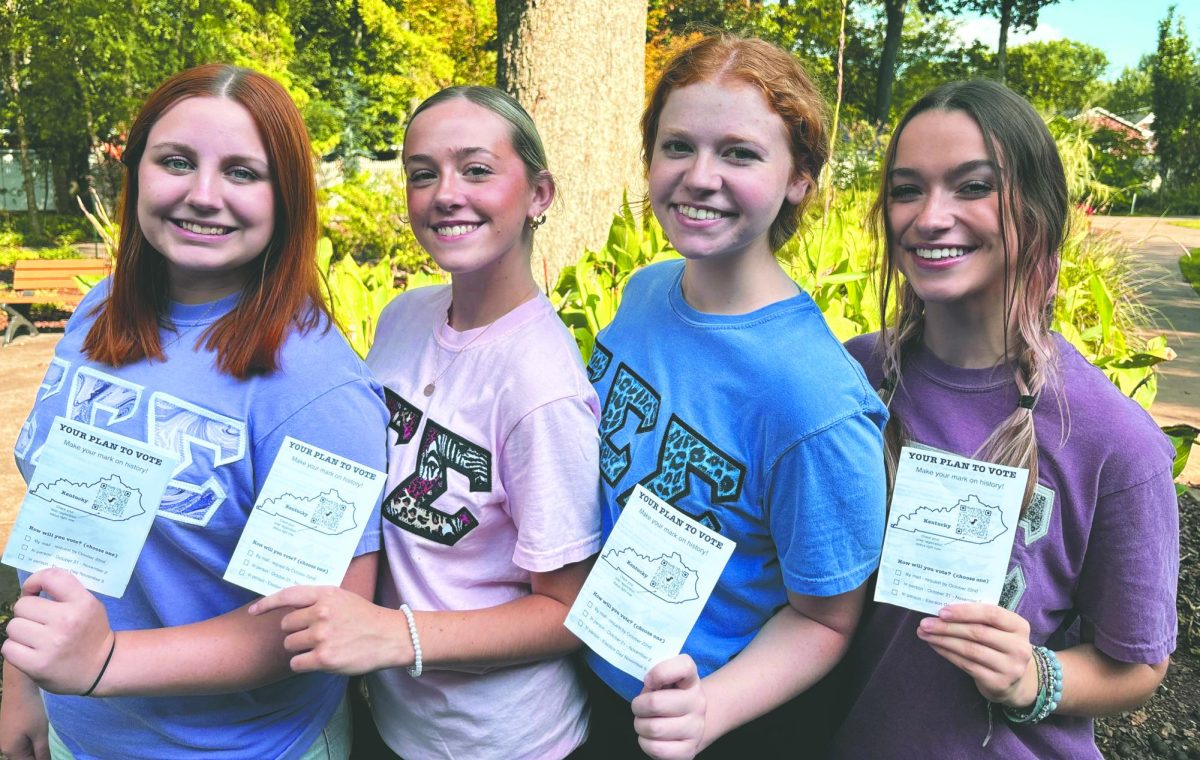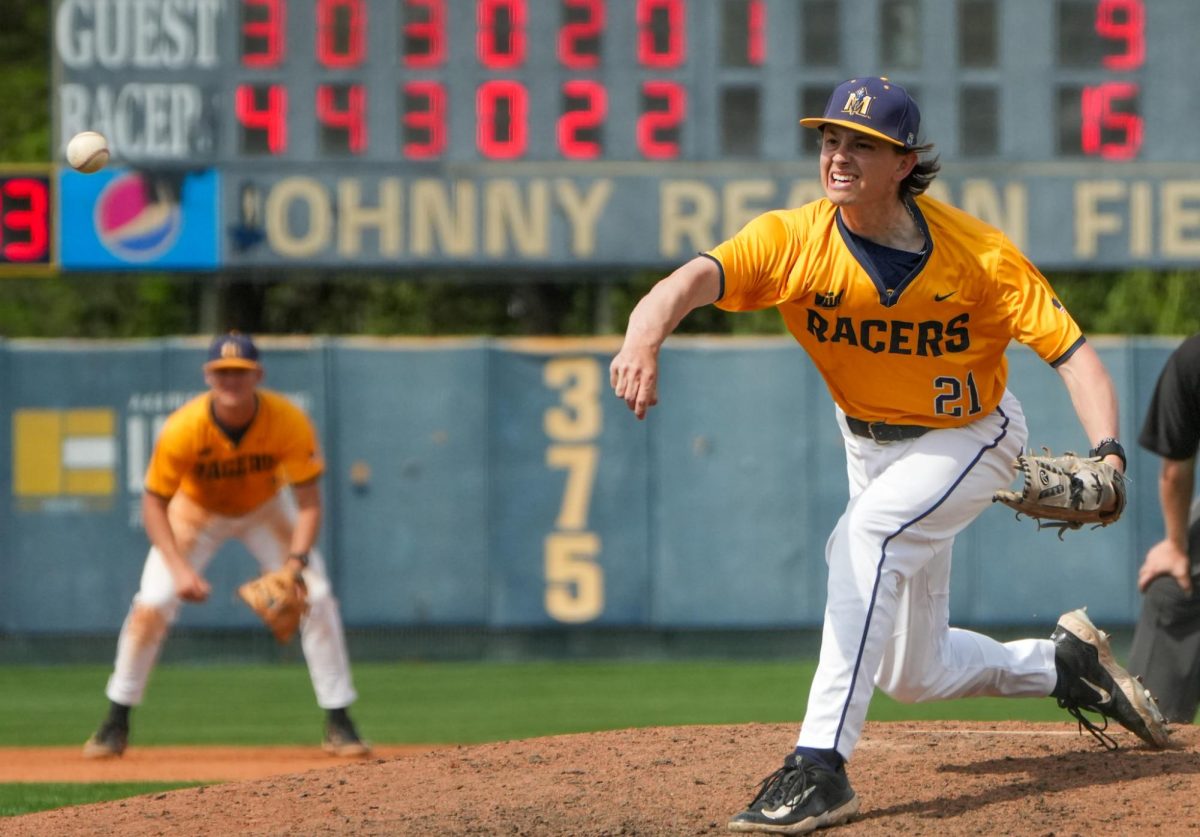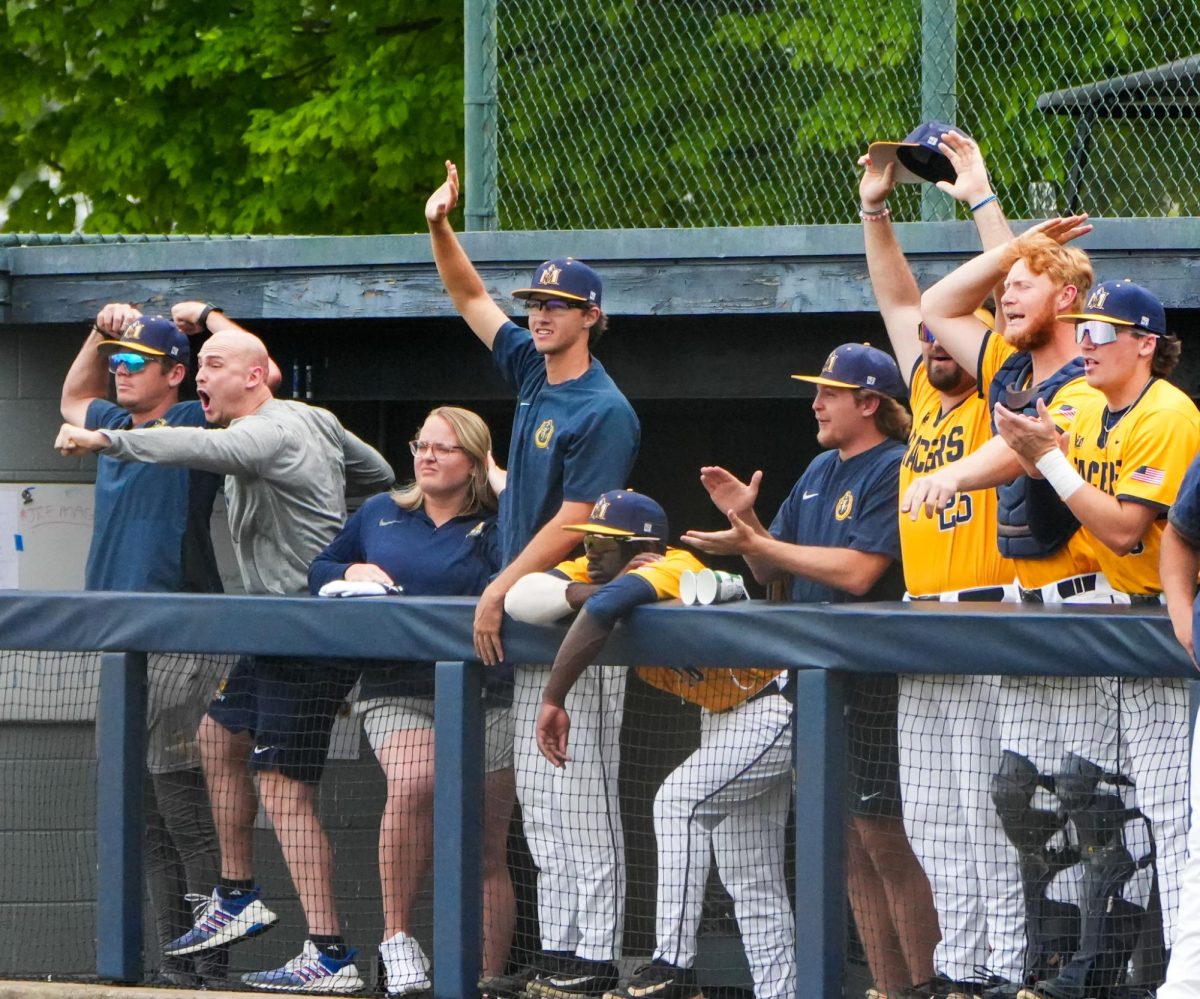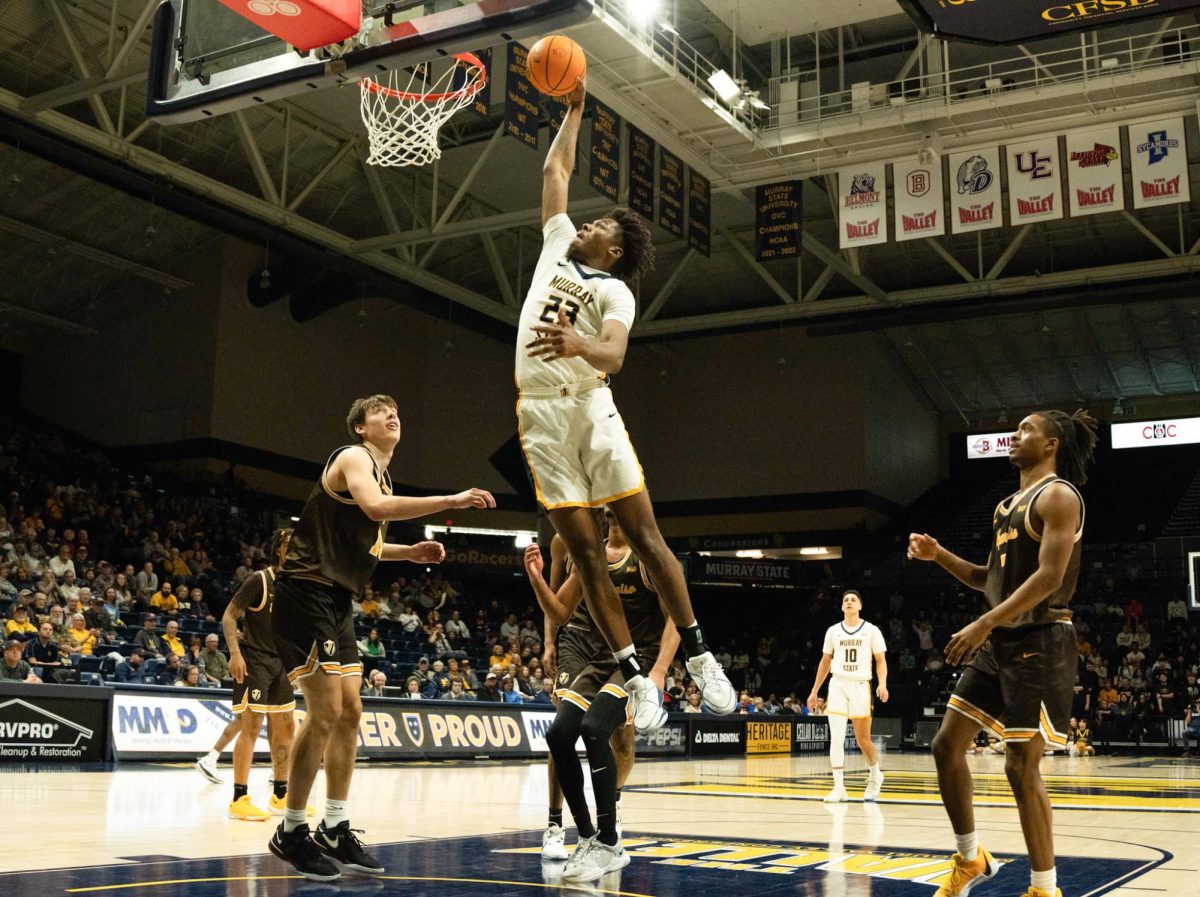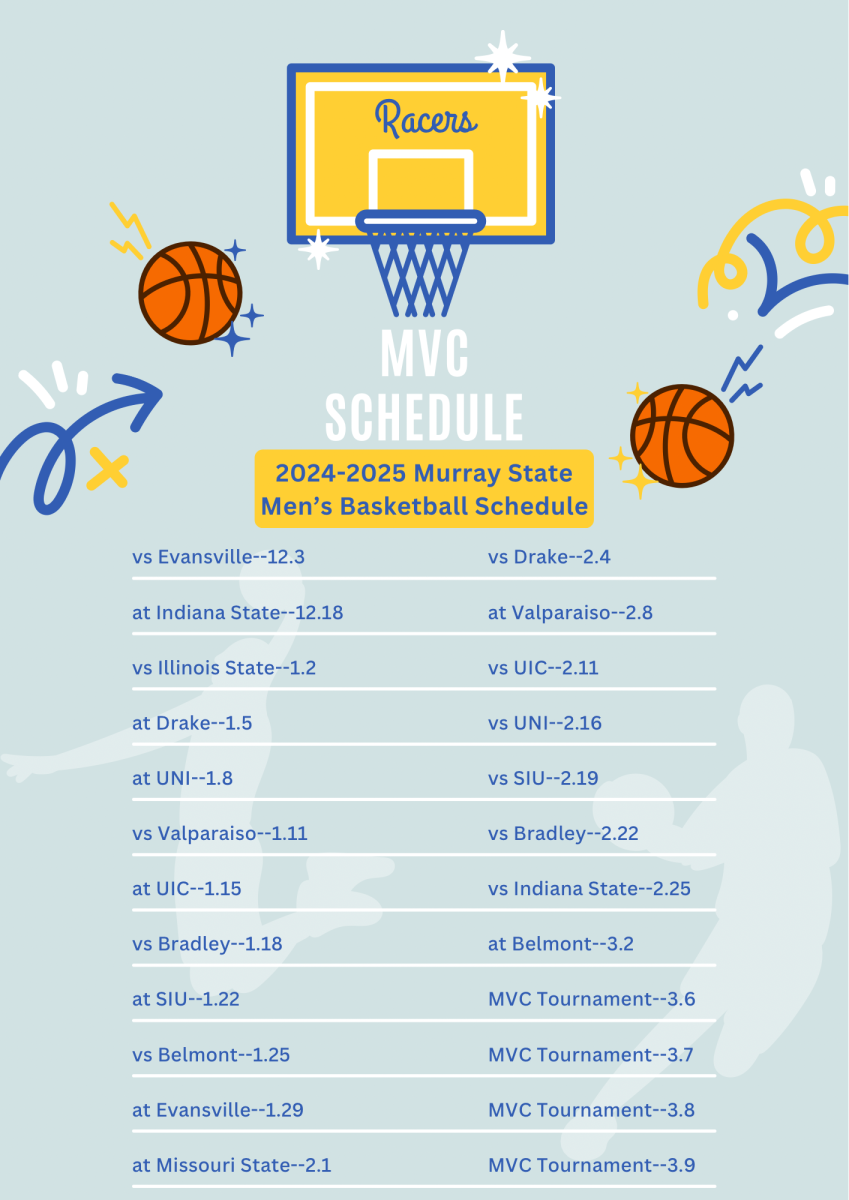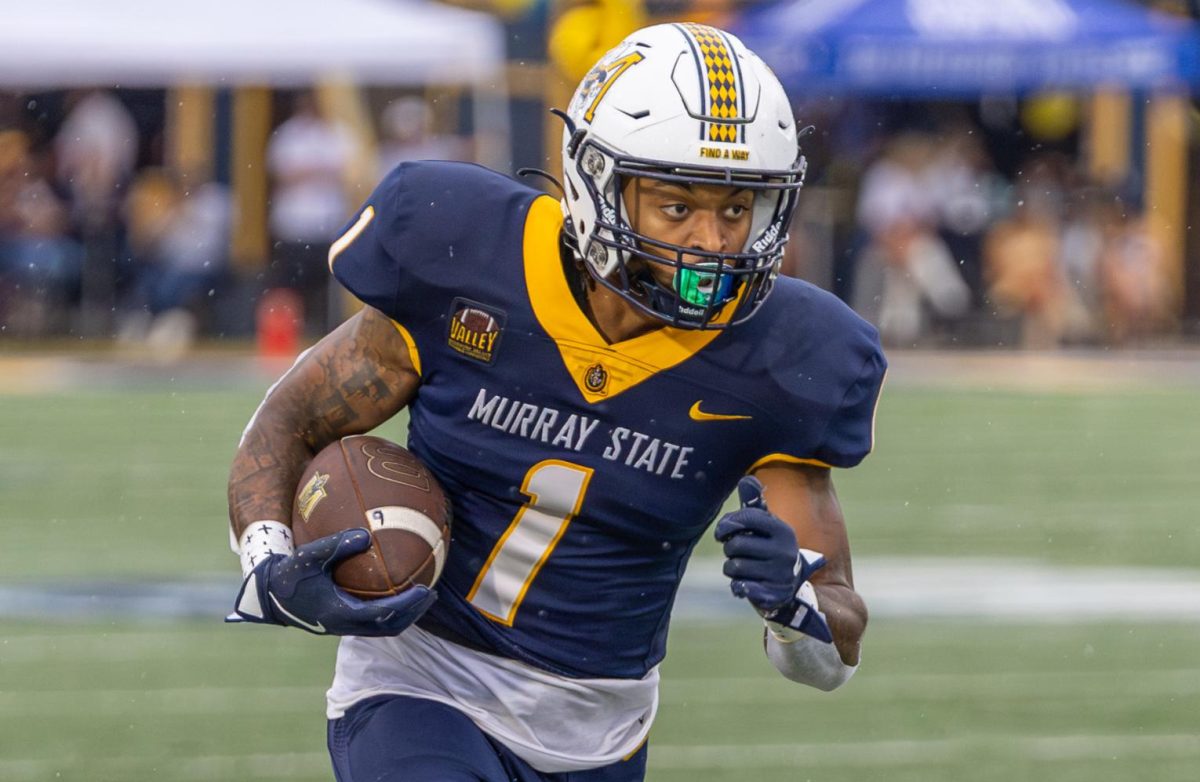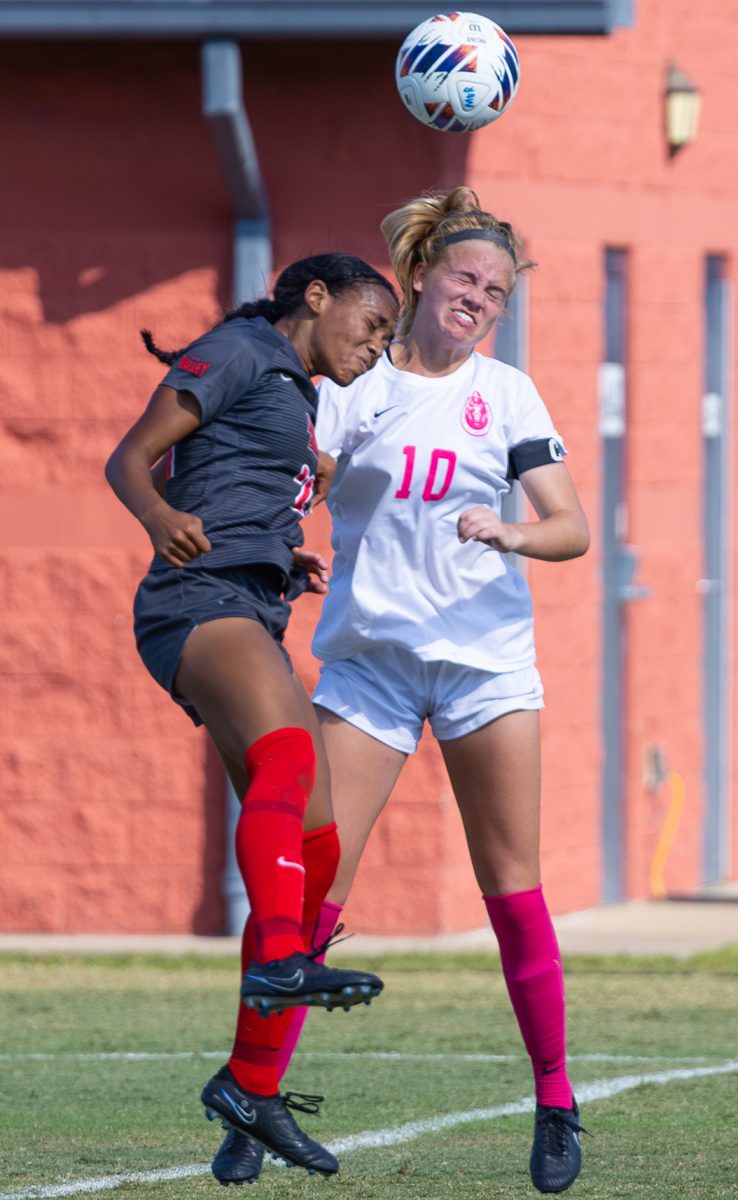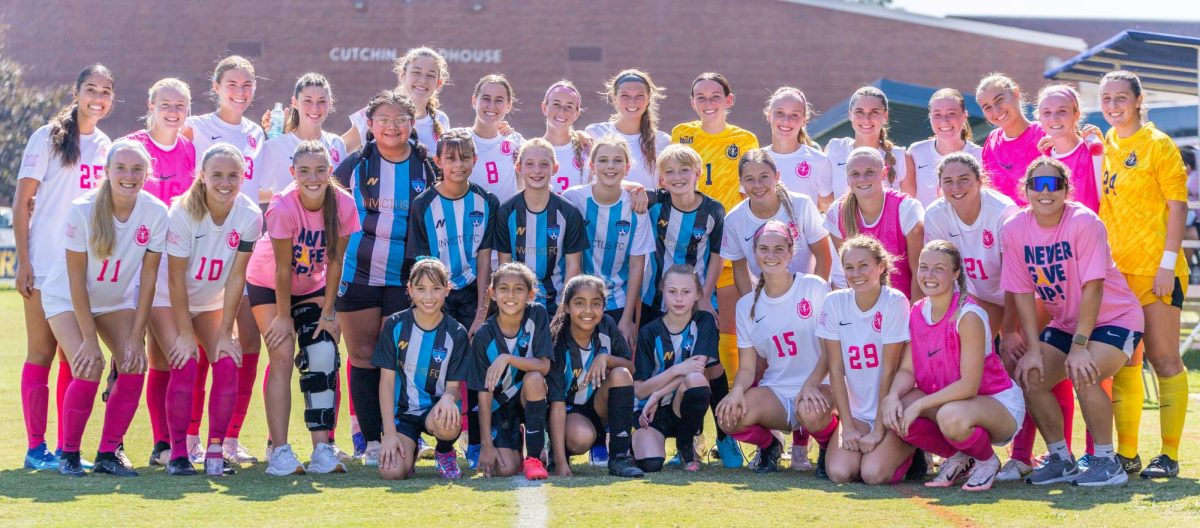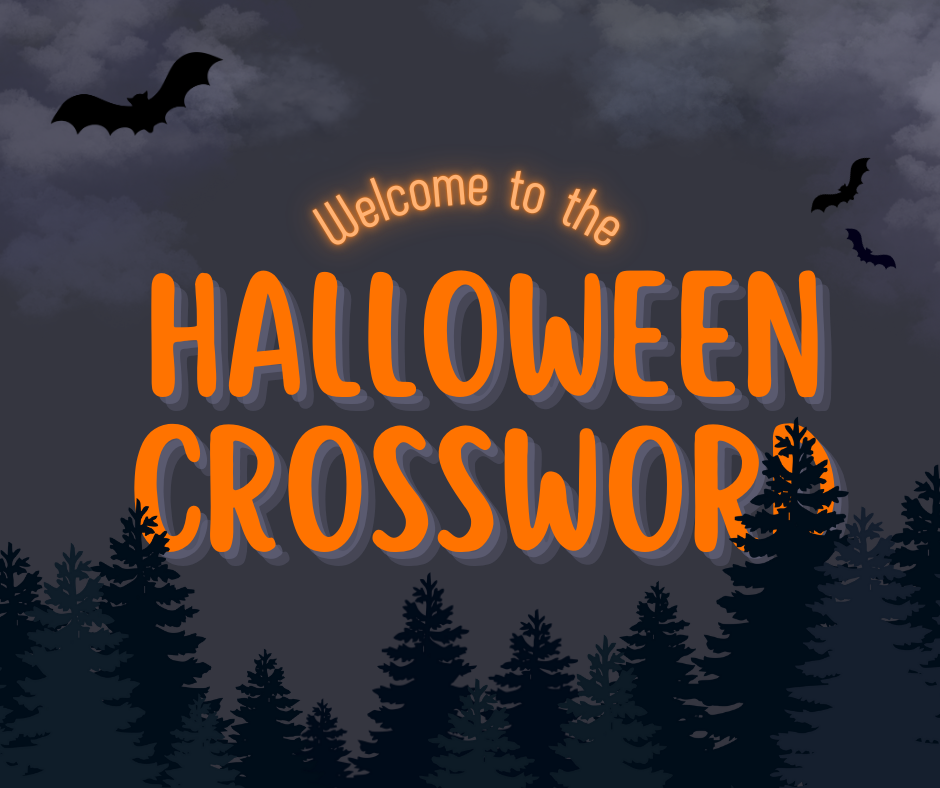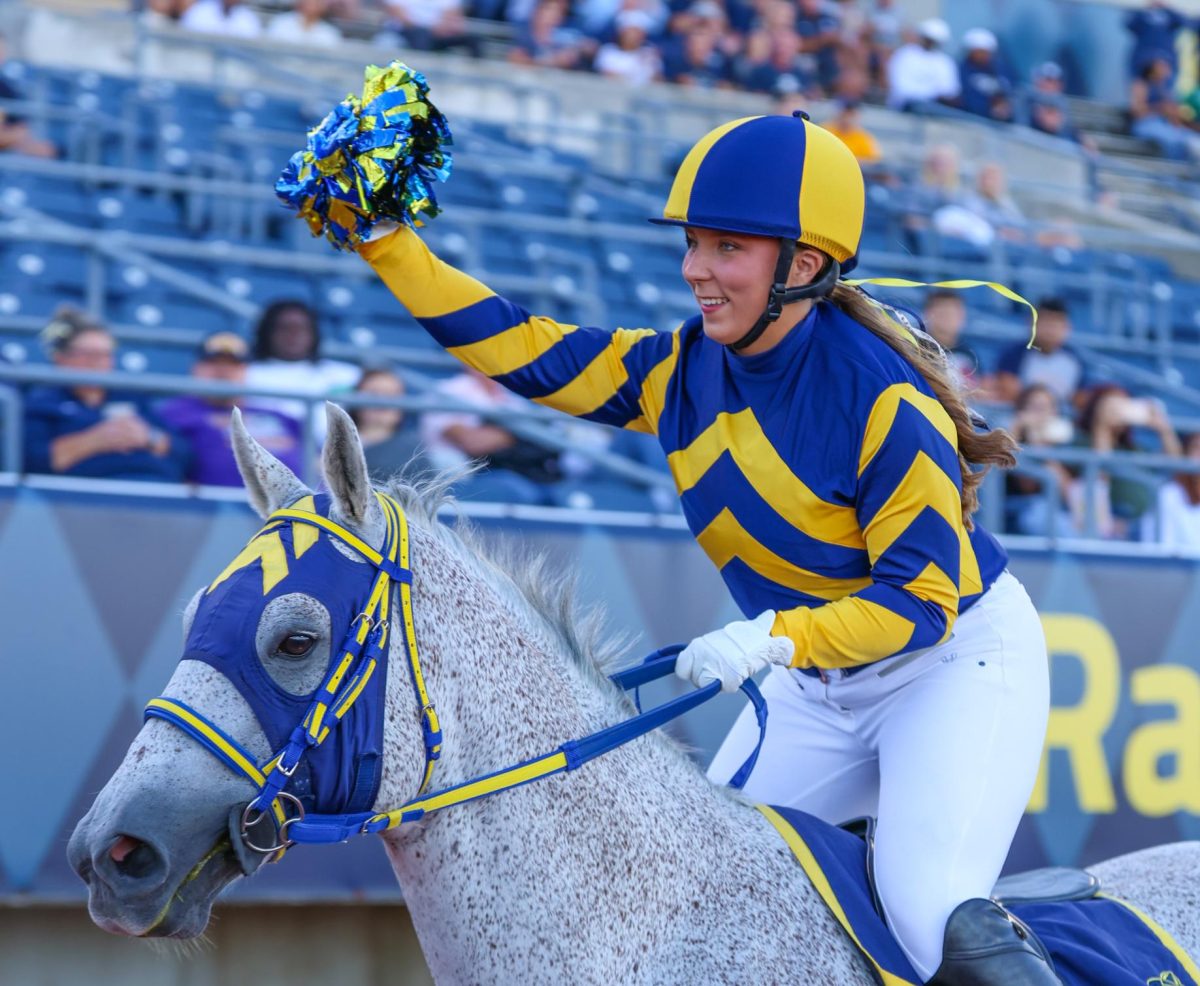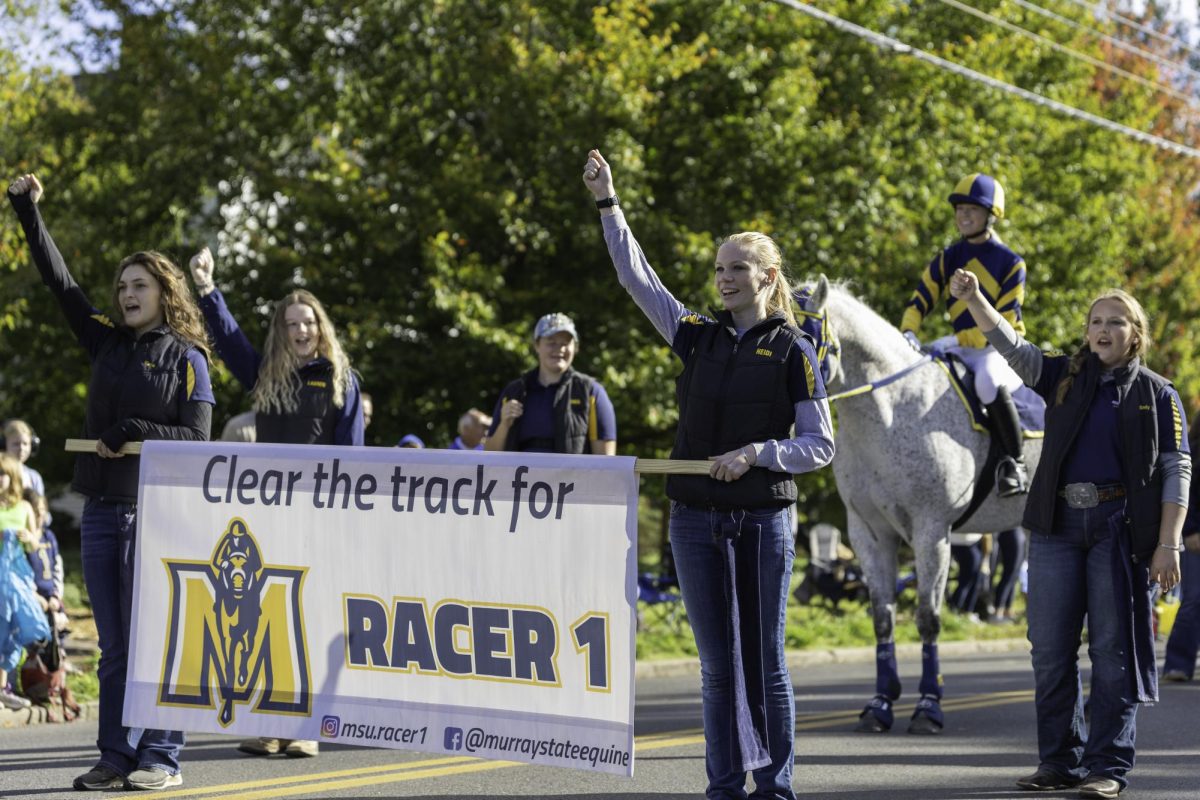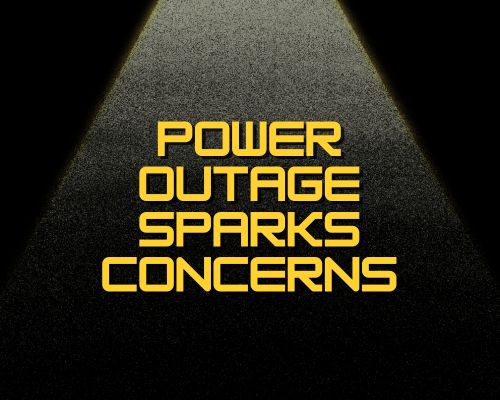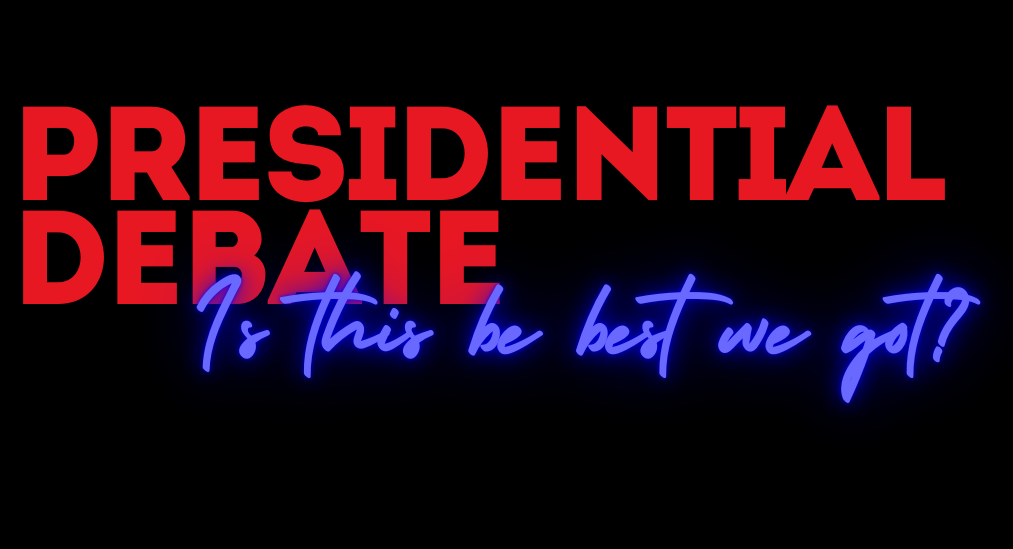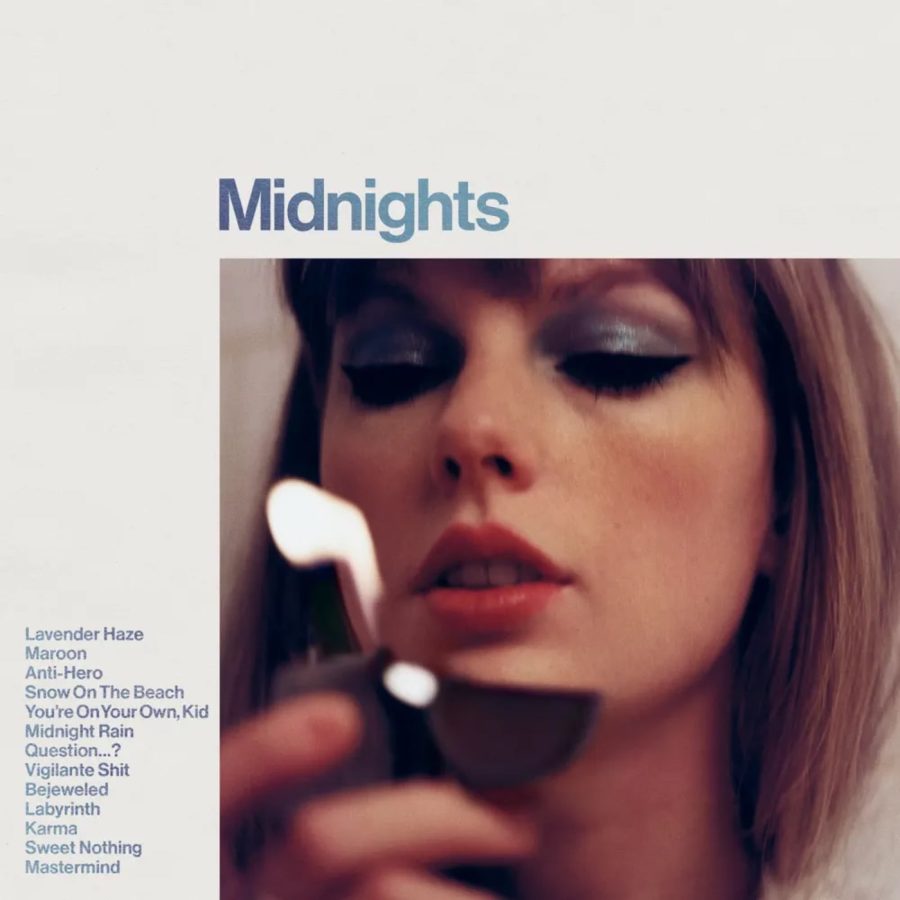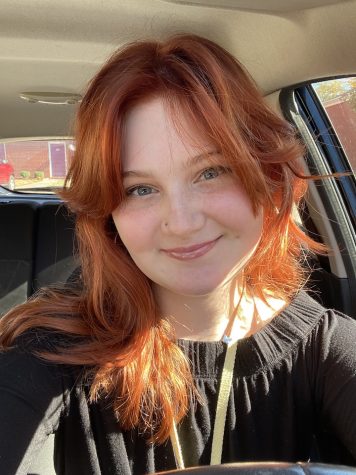Swift branches out but disappoints in ‘Midnights’
October 27, 2022
When I was 9, Taylor Swift released the music video for “Teardrops On My Guitar.” I was instantly captivated—with her glittery blue eyeshadow and blonde, wavy hair, she told a story about passing an unrequited love in a hallway, laughing at all his jokes and going home to write a song about it. I listened to “Fearless,” “Speak Now” and “Red” when they were released, fully entranced by her storytelling abilities. I wasn’t a fan of her albums after that until she released “folklore” in 2020. Since then, I’ve been on the Swift train again.
“Midnights” was released on Friday, Oct. 21 after weeks of Swift revealing each track name on TikTok. Since its release, it has set several records: biggest streaming of the year, largest streaming week ever for a female artist, single-largest sales week for a vinyl since 1991 and more, according to Billboard. The album has 13 tracks. Swift dropped an extended version of the album three hours later with seven additional tracks.
“Lavender Haze” begins with a thumping beat and a modulated voice that both persist through the song. When I first heard this, I was a little surprised, as I wasn’t expecting an electronic-pop sound for this album, and I don’t think it entirely fits Swift. She sings about “lavender haze,” a phrase that was used in the 1950s to describe the feeling of falling in love, and Swift uses it to describe her six-year relationship with Joe Alwyn. The lyrics allude to rumors, tabloids and other negative press that they’ve had to dodge.
“Maroon” starts very similarly to “Lavender Haze” with percussion but instead it alternates between bass drum and clipped electronic snare with synth in the background. The melody feels a little unoriginal, which isn’t inherently bad, but it didn’t capture my attention. That is until the chorus when she picks up the pace, singing, “The burgundy on my T-shirt when you splashed your wine into me and how the blood rushed into my cheeks.” The chorus transitions back into the verses with a descending synth. This is definitely a song that grew on me, particularly the chorus.
“Anti-Hero” was the first song I really enjoyed on first hearing it. Swift sings, “When my depression works the graveyard shift, all of the people I’ve ghosted stand there in the room.” She begins in a higher register and switches to her chest voice. I don’t mind the electronic sound here; it’s believable this time around. In the chorus, she sings, “It’s me, hi. I’m the problem. It’s me,” which has been stuck in my head since I listened to it.
“Snow On The Beach” is a collaboration with known indie pop queen Lana Del Rey. Swift ditches the percussion for strumming and a brighter melody. Her voice is softer here; it sounds like a track that could be off “evermore.” I was a little disappointed, however, by the lack of participation from Rey. She doesn’t have a verse of her own and instead takes up backing vocals.
You’re On Your Own, Kid” has become my favorite. This song and “Anti-Hero” are the two tracks on which Swift is lyrically the most vulnerable. Sometimes I find her rhymes corny, but I enjoy them here: “From sprinkler splashes to fireplace ashes, I gave my blood, sweat and tears for this. I hosted parties and starved my body like I’d be saved by a perfect kiss.” Swift sings about her experience growing up in the spotlight since adolescence.
“Vigilante Sh*t” introduces the corniest lyric on the album: “Draw the cat eye sharp enough to kill a man.” Swift sings about revenge, but again, I don’t buy it. In the background, the bass thumps, and Swift sings in a lower register. Objectively, these tracks aren’t bad sonically, but I just don’t find it genuine from Swift.
“Bejeweled” is my least favorite track. It’s too bright and sweet for my taste. It begins with a twinkling sound and leaps into a bass-heavy background. It’s a shallow sentiment, and I’ve come to expect more creativity from Swift. She’s allowed to have fun, but this track isn’t fun to me.
“Labyrinth” returns to a soft, gentle tone with electronic embellishments. She sings higher notes, which I don’t think sound the best, but this is the type of sweetness I enjoy from her: “It only feels this raw right now, lost in the labyrinth of my mind.” The song breaks down into a modulated, electronic sound later, which somewhat reminds me of another band, The 1975.
“Karma” is a track I really liked starting out. A synth and simple beat take prominence in the verses, as Swift layers octaves over each other, and her vocals take front stage in the chorus. Swift sings in her lower register before returning to higher notes in the chorus: “Karma is my boyfriend, karma is a god…Karma’s a relaxing thought.” But then she ruined it, singing, “Karma is a cat purring in my lap because it loves me,” which is a cheesy metaphor to me.
“Mastermind” features an arpeggiator sound with heavy bass. Swift plays into the public perception of her as “controlling,” singing, “What if I told you I’m a mastermind?” and “No one wanted to play with me as a little kid, so I’ve been scheming like a criminal ever since to make them love me and make it seem effortless.”
This album is heavy with arpeggiator, heavy bass and electronic flourishes, which is a genre I can usually appreciate, but I don’t entirely enjoy it from Swift. I became a fan of Swift again after listening to “folklore”: her poetic language, storytelling and raw emotion is what drew me back to her. I expected the same sort of style in “Midnights,” which was an incorrect assumption. I was partially disappointed—instead of long, haunting lines and stripped-down acoustics, we got clever rhyme schemes and electronic chords.
For that, I’ll give the album a 6.5 out of 10. The more I listen to it, the more it grows on me, but this is nowhere near the love and joy I felt listening to “Red” and “folklore.” I like her more fun tracks, and I’m glad she’s experimenting with sound. It’s just not what I prefer to hear from Swift—and I don’t think it’s her forte. I’ll still be streaming it and bumping it in my car, but I wish I could connect to this album more.



